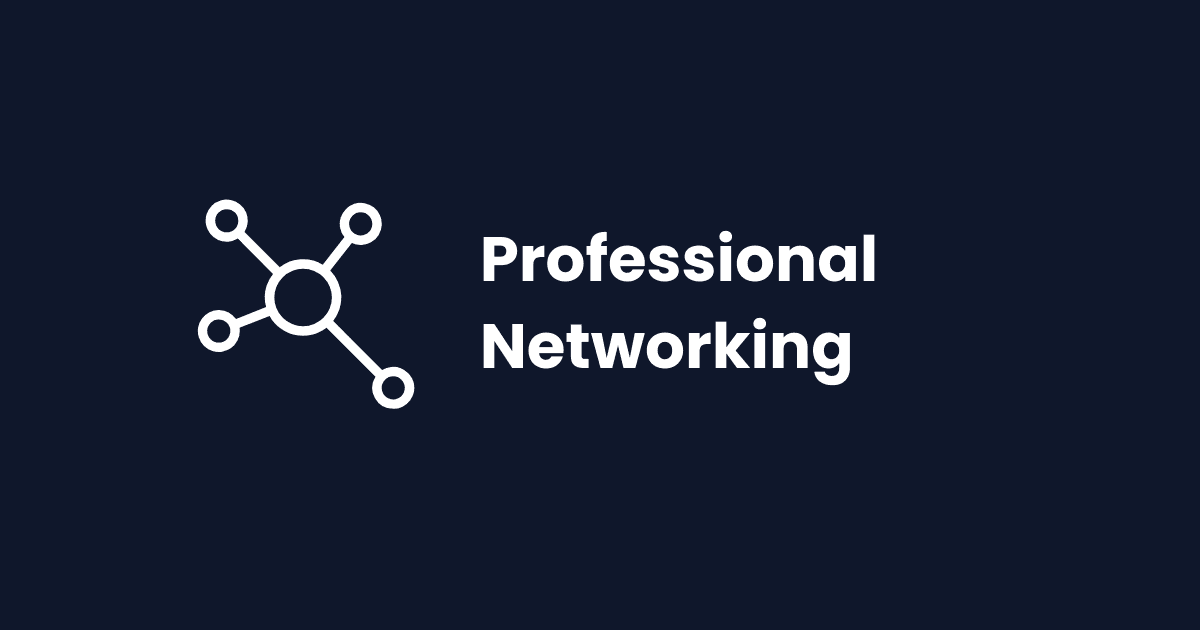
Employability
21 min read
Delinquency Specialist Resume Examples: 4 Samples + Skills That Get Interviews
Synopsis
Learn what hiring managers look for in collections and delinquency recovery resumes. Includes 4 real resume examples, essential skills, compliance keywords, and action verbs that pass ATS screening.
Collections and delinquency recovery roles require resumes that prove you can handle pressure, follow regulations, and recover funds. Whether you're applying as a Collections Specialist, Delinquency Analyst, or Account Recovery Agent, hiring managers need to see quantifiable results, compliance knowledge, and customer communication skills.
This guide breaks down exactly what works in collections resumes, using four real examples that show different experience levels and career paths. You'll see what hiring managers prioritize, which skills matter most, and how to position your experience to pass applicant tracking systems and land interviews.
What Delinquency Specialist Resumes Need to Include
Collections and delinquency recovery positions exist across banking, credit unions, auto finance, healthcare billing, utilities, and government loan services. The average Collections Specialist salary in the United States ranges from $44,800 to $67,300 annually, with experienced specialists earning between $36,157 and $53,160 depending on location and industry. Senior Collections Specialists typically earn between $46,933 and $58,953, reflecting the expertise and leadership responsibilities these roles require.
Your resume must demonstrate three core competencies: recovery performance, regulatory compliance, and customer communication. Hiring managers evaluate candidates based on dollar amounts recovered, call volumes managed, and adherence to federal regulations like the Fair Debt Collection Practices Act (FDCPA), Fair Credit Reporting Act (FCRA), and Telephone Consumer Protection Act (TCPA).
Include specific recovery metrics such as monthly collection totals, percentage of delinquency reduction, or number of successful payment arrangements. List compliance systems you've worked with, including CRM platforms like Salesforce, Artiva, or Genesys. Demonstrate your understanding of delinquency cycle management, skip tracing techniques, and charge-off prevention strategies.
Bilingual capabilities, particularly English-Spanish fluency, significantly strengthen applications. Technical proficiency with collections software, automated dialer systems, and account tracking databases separates competitive candidates from those who simply list duties.
⭐⭐⭐⭐⭐ "I had been out of the workforce for a few years and updating my resume felt overwhelming. Yotru helped pull my experience together and suggested words that make sense in today's market. I didn't have to worry about formatting, and I'm now getting callbacks." — J B
Delinquency Specialist Skills for Resume
Your skills section should reflect both technical competencies and regulatory knowledge. Collections employers scan for specific keywords that indicate you understand the full recovery process and can work within legal frameworks.
Core Technical Skills
Include delinquency cycle management, account recovery operations, payment plan negotiation, skip tracing proficiency, collections documentation, and CRM system operation. List specific platforms you've used, such as Salesforce, Artiva, Genesys, or Yardi property management software.
Demonstrate familiarity with charge-off prevention strategies, early-stage collections processes, hardship program screening, and dispute resolution protocols. These terms signal that you understand the full collections workflow from initial delinquency through final resolution.
Compliance and Regulatory Knowledge
Federal compliance knowledge is non-negotiable in collections roles. Your resume should reference FDCPA compliance understanding, FCRA regulations familiarity, TCPA calling restrictions knowledge, and UDAAP (Unfair, Deceptive, or Abusive Acts or Practices) awareness.
Include experience with collections contact compliance, call quality metrics tracking, legal documentation standards, and audit trail maintenance. If you've worked in healthcare collections, add HIPAA compliance for medical billing contexts.
Communication and Soft Skills
Collections work demands exceptional interpersonal abilities. Highlight customer communication under pressure, conflict de-escalation techniques, empathetic outreach approaches, and negotiation for payment arrangements.
Demonstrate proficiency in high call volume management, bilingual customer service (specify languages), clear written correspondence, and professional phone etiquette. These skills prove you can maintain compliance while building rapport with customers experiencing financial hardship.
Collections Recovery Resume Examples: What Works and What to Improve
The following four resume examples represent different experience levels and transition paths in collections and delinquency recovery. Each example highlights effective strategies and identifies opportunities for improvement.
Mike Kolaktor – Collections Specialist (Mid-Level Experience)
Show Image
Effective Elements
Mike quantifies his impact with specific dollar amounts, stating "$11,200 recovered in one month" rather than vague descriptions. He demonstrates compliance awareness by referencing FDCPA knowledge and emphasizes conflict resolution abilities alongside empathy and calm communication.
His certifications in collections compliance and automation signal he's prepared for evolving industry practices. The resume positions him well for roles requiring monthly recovery targets, high call volume handling, and systematic customer outreach.
Improvement Opportunities
The summary section reads generically and focuses on responsibilities rather than achievements. A stronger approach would open with top accomplishments, specific tools used (Genesys, Artiva, Salesforce), and growth objectives such as team leadership or cross-functional collaboration.
Missing ATS keywords like "delinquency cycle management," "dispute resolution," or "call handling metrics" reduce discoverability. Clearer section formatting would guide recruiters' attention more effectively to quantifiable results.
Turn Mike's resume into yours by adding your experience
Jordan Mitchell – Senior Delinquency Specialist
Show Image
Effective Elements
Jordan's resume targets senior and team lead positions effectively. Leadership achievements include mentoring four junior associates, implementing process improvements, and driving a 22% delinquency reduction. His language conveys confidence and aligns with roles requiring team oversight, compliance strategy, and operations management.
Specific terminology like skip tracing, call scripts, FDCPA compliance, and early-stage collections enhances recruiter appeal. The experience demonstrates both hands-on collections work and strategic process development.
Improvement Opportunities
The outdated "Objective" section should be removed or transformed into a results-driven summary. He should emphasize proficiency with specific systems (Salesforce, Excel tracking tools, collections databases) and clarify how process improvements impacted charge-off prevention or customer satisfaction metrics.
Visual formatting could be more concise with improved bullet structuring to surface accomplishments faster. Adding quantified metrics for team performance under his mentorship would strengthen the leadership narrative.
Turn Jordan's resume into yours by adding your experience
Isabella Ramirez – Junior Delinquency Specialist (Career Changer)
Show Image
Effective Elements
Isabella successfully frames her transition from retail to collections as a growth opportunity. Her bilingual fluency (English and Spanish) represents significant value in collections environments. The resume highlights transferable skills including active listening, front-line customer service, and foundational compliance knowledge.
Certifications in FDCPA and collections communication training demonstrate proactive learning. Volunteer work in credit literacy workshops adds credibility and shows genuine community engagement with financial education.
Improvement Opportunities
Quantifiable results would substantially strengthen the application. She should specify daily call volumes handled, number of payment plans successfully negotiated, or customer recovery percentages from her retail experience.
The summary could project more confidence and forward momentum, perhaps "Bilingual collections assistant with proven track record in customer outreach and dispute resolution." Adding familiarity with CRM platforms, skip tracing tools, or dialer software would improve ATS optimization.
A stronger skills section featuring keywords like "delinquency cycle basics," "hardship program screening," or "outbound call documentation" would elevate her candidacy for entry-level positions.
Turn Isabella's resume into yours by adding your experience
Carlos Mendoza – Experienced Collections Specialist
Show Image
Effective Elements
Carlos presents a well-structured resume demonstrating bilingual communication skills, dual compliance knowledge (FDCPA and HIPAA), and concrete results like 22% delinquency rate reduction. His skills section clearly lists account recovery, payment negotiations, collections documentation, and CRM familiarity.
Work experience shows understanding of high call volume environments, customer hardship review processes, and accurate record-keeping requirements. He positions himself effectively for mid-to-senior roles focused on collections strategy, regulatory adherence, and client resolution success.
Improvement Opportunities
Naming specific tools and software would strengthen ATS performance. Explicitly listing Salesforce, Artiva, or Genesys demonstrates technical proficiency and improves keyword matching in automated screening systems.
The summary should open more assertively, highlighting years of experience and top achievements immediately. Including terms like "skip tracing," "charge-off prevention," or "inbound collections recovery" would broaden appeal across different collections specializations.
Additional details about cross-department collaboration or participation in compliance audits would demonstrate broader organizational contribution beyond individual performance metrics.
Turn Carlos's resume into yours by adding your experience
Delinquency Specialist Resume Summary Examples
Your summary section should immediately establish your value proposition. Use this prime real estate to highlight your strongest qualifications, compliance knowledge, and measurable achievements.
Entry-Level Example: "Bilingual Collections Associate with FDCPA certification and 1+ year customer service experience. Skilled in payment plan negotiation, account documentation, and empathetic customer communication. Fluent in English and Spanish with proven ability to manage high call volumes while maintaining compliance standards."
Mid-Level Example: "Results-driven Collections Specialist with 3+ years recovering delinquent accounts across banking and healthcare sectors. Achieved $180K+ in annual recoveries while maintaining 95% compliance audit score. Proficient in Salesforce, skip tracing protocols, and FDCPA/TCPA regulations. Experienced in early-stage through charge-off prevention workflows."
Senior-Level Example: "Senior Delinquency Specialist with 7+ years leading collections operations and mentoring junior associates. Reduced portfolio delinquency 28% through process optimization and team training initiatives. Expert in FDCPA compliance strategy, charge-off prevention, and CRM system implementation. Track record of balancing aggressive recovery targets with customer retention objectives."
⭐⭐⭐⭐⭐ "Switching into tech support, Yotru helped me highlight software skills, not just troubleshooting. Adding ATS terms made the difference. I am actually getting call backs now." — A Kaczmarek
Collections Resume Keywords That Pass ATS Screening
Applicant tracking systems scan for specific terminology that indicates collections expertise. Include these keywords naturally throughout your resume to improve visibility.
Federal Regulations and Compliance
FDCPA (Fair Debt Collection Practices Act), FCRA (Fair Credit Reporting Act), TCPA (Telephone Consumer Protection Act), UDAAP (Unfair, Deceptive, or Abusive Acts or Practices), Regulation F compliance, HIPAA compliance (for medical collections), collections contact compliance, and Consumer Financial Protection Bureau (CFPB) guidelines awareness.
Collections Processes and Techniques
Skip tracing, charge-off prevention, payment plan negotiation, collections cycle management, early-stage collections, mid-stage recovery, late-stage collections, dispute resolution, hardship program evaluation, settlement negotiation, account reconciliation, and delinquency tracking systems.
Technology and Systems
CRM systems (Salesforce, Artiva, Genesys), automated dialer platforms, collections software, account management databases, call quality monitoring systems, compliance tracking tools, skip tracing databases, payment processing platforms, and documentation management systems.
Performance Metrics
Call quality metrics, recovery rate percentages, delinquency reduction targets, call volume management, collection rate optimization, charge-off prevention success, payment arrangement conversion rates, and compliance audit scores.
Action Verbs for Collections and Delinquency Recovery Resumes
Strong action verbs demonstrate your direct impact on recovery outcomes and compliance maintenance. These terms help quantify your contributions and pass ATS screening effectively.
Recovered showcases your ability to retrieve past-due amounts and resolve delinquent accounts. Use this when describing specific dollar amounts or account volumes you successfully collected.
Negotiated emphasizes skill in working out payment plans, settlements, or financial arrangements. This verb demonstrates your ability to find solutions that work for both the organization and the customer.
Traced describes skip tracing work, particularly when you've successfully located unreachable or unresponsive account holders using investigative techniques and database tools.
Investigated highlights your work researching disputes, identifying account irregularities, or ensuring compliance with financial regulations. This verb works well for roles requiring analytical skills.
Resolved demonstrates how you handled escalated calls, fixed payment issues, or cleared disputes in timely and compliant ways. It shows problem-solving abilities under pressure.
Maintained reflects consistency in tracking account details, ensuring policy compliance, or sustaining customer satisfaction metrics throughout the collections process.
Documented proves you kept detailed records, followed internal procedures, and ensured legal documentation standards were met for compliance and audit purposes.
Managed explains how you oversaw account portfolios, call queues, or supervised junior team members. This verb works particularly well for mid-level and senior positions.
Trained indicates leadership or mentorship experience, especially in onboarding new agents or conducting compliance training sessions for team members.
Reduced proves your impact on performance by lowering delinquency rates, minimizing charge-offs, or improving account retention outcomes through strategic interventions.
What Is a Delinquency Specialist?
A delinquency specialist manages accounts that have fallen behind on payment obligations, working to recover funds while maintaining regulatory compliance and customer relationships. These professionals operate across multiple industries including banking, healthcare, property management, auto finance, and utilities.
Delinquency specialists track past-due accounts, contact customers to negotiate payment arrangements, implement skip tracing techniques to locate unresponsive account holders, and ensure all collection activities comply with federal and state regulations. They document all customer interactions, maintain accurate account records, and escalate accounts to legal proceedings when necessary.
The role requires balancing aggressive recovery targets with empathetic customer service. Specialists must understand complex regulations like FDCPA, FCRA, and TCPA while maintaining professional communication with customers experiencing financial hardship. Success depends on negotiation skills, technical proficiency with collections software, and the ability to remain calm under pressure during difficult conversations.
Delinquency Specialist Job Description for Resume
When describing your delinquency specialist experience, focus on specific responsibilities and measurable outcomes rather than generic duty lists.
Include account portfolio management with specific volumes (e.g., "Managed portfolio of 200+ delinquent accounts valued at $2.5M"). Describe your recovery activities, such as "Conducted 60+ outbound calls daily to negotiate payment arrangements on past-due accounts."
Detail your compliance responsibilities: "Maintained 100% FDCPA compliance through documented call scripts and thorough account notation." Reference skip tracing work: "Located 45+ unresponsive account holders monthly using database research and investigative techniques."
Quantify your dispute resolution: "Resolved 30+ billing disputes per month through account research and customer communication." Describe documentation practices: "Maintained detailed interaction logs ensuring legal compliance and audit trail integrity."
Include any training or mentorship: "Trained 6 new team members on collections best practices and federal compliance requirements." Reference cross-functional work: "Collaborated with legal department to prepare 15+ accounts monthly for formal collection proceedings."
Resume Formatting Best Practices for Collections Specialists
Formatting directly impacts whether your resume passes automated screening and whether hiring managers can quickly identify your qualifications. Collections roles receive high application volumes, making clear presentation essential.
ATS-Friendly Structure
Use standard section headers that applicant tracking systems recognize: Professional Summary, Skills, Work Experience, Education, and Certifications. Avoid creative titles like "My Journey" or "What I Bring" that confuse automated parsers.
Place your contact information at the top in plain text format. Include your full name, phone number, email address, city and state, and LinkedIn profile URL if professionally maintained. Skip graphics, headers, or footers that many ATS systems cannot read properly.
Choose simple, readable fonts like Arial, Calibri, or Times New Roman in 10-12 point size. Avoid decorative fonts, multiple colors, or excessive formatting that may not translate correctly through automated systems. Use consistent formatting throughout the document.
Length and Content Density
Collections resumes should typically span one to two pages depending on experience level. Entry-level candidates with less than five years of experience should aim for one page. Mid-level professionals with five to ten years can extend to two pages. Senior specialists with extensive leadership experience may justify two full pages.
Each bullet point should contain substantive information rather than generic duties. Instead of "Handled customer calls," write "Conducted 60+ daily outbound calls to negotiate payment plans on accounts 30-90 days delinquent, achieving 35% successful arrangement rate."
Avoid large blocks of text. Break experience into concise bullet points that begin with strong action verbs and include specific metrics. Hiring managers should be able to scan your resume in 30 seconds and identify your key qualifications.
Section Ordering for Maximum Impact
Place your Professional Summary immediately below contact information. This 3-4 sentence paragraph should highlight your years of experience, specialized areas (healthcare collections, auto finance, mortgage delinquency), top achievement, and key compliance expertise.
Follow with a Skills section organized into clear categories: Technical Skills, Compliance Knowledge, and Communication Abilities. This allows both ATS systems and human reviewers to quickly identify your qualifications against job requirements.
List Work Experience in reverse chronological order with company name, location, your title, and employment dates clearly displayed. Include 3-6 bullet points per position emphasizing measurable achievements, regulatory compliance, and technical proficiencies.
Place Education after Work Experience unless you're a recent graduate with limited professional experience. Include degree, institution, graduation year, and relevant coursework or academic achievements only if recent or particularly relevant to collections work.
Add a Certifications section if you hold FDCPA compliance training, collections communication certifications, skip tracing qualifications, or industry-specific credentials. These specialized qualifications often set candidates apart in competitive applicant pools.
Quantifying Your Collections Impact
Numbers transform generic experience descriptions into compelling evidence of your capabilities. Every achievement statement should include measurable data whenever possible.
Recovery amounts provide the most direct impact evidence. Instead of "Recovered delinquent accounts," specify "Recovered $180,000+ annually across 200+ accounts ranging from 30-180 days delinquent." This demonstrates both volume and complexity.
Delinquency reduction percentages show strategic impact. "Reduced portfolio delinquency rate from 18% to 11% over 6 months through systematic early-stage intervention and payment plan optimization" proves you understand prevention, not just recovery.
Call volumes indicate your capacity for high-pressure work. "Managed 60-80 daily outbound calls while maintaining 92% FDCPA compliance audit score" shows you balance productivity with regulatory adherence.
Success rates demonstrate effectiveness. "Negotiated payment arrangements on 40% of contacted accounts, exceeding departmental target of 28%" proves your negotiation capabilities produce results above expectations.
Account portfolio sizes indicate trust and responsibility. "Managed delinquency portfolio valued at $3.2M across 250+ accounts in various stages from early delinquency through pre-legal" shows you handle significant financial responsibility.
Common Resume Mistakes in Collections Applications
Avoid vague language like "responsible for collections" or "handled delinquent accounts." These phrases provide no insight into your actual performance or capabilities. Hiring managers need specific evidence of your contributions.
Never include sensitive information like specific debtor names, account numbers, or personally identifiable information from your collections work. This violates privacy regulations and demonstrates poor judgment regarding confidential information.
Skip unrelated work experience unless you can draw clear connections to collections competencies. Your three-year retail position from a decade ago adds little value unless you emphasize transferable skills like customer conflict resolution or POS system proficiency.
Avoid listing every software tool you've ever encountered. Focus on systems directly relevant to collections work: CRM platforms, automated dialers, skip tracing databases, and compliance tracking tools. Generic Microsoft Office proficiency can be assumed.
Never misrepresent your compliance knowledge. If you haven't worked with TCPA regulations, don't claim expertise. Regulatory compliance is verifiable during interviews and any exaggeration will damage your credibility immediately.
Industry-Specific Resume Variations
Collections work spans multiple industries, each with unique terminology and priorities. Tailoring your resume to specific sectors improves your match against job requirements.
Healthcare Collections and Medical Billing
Medical collections specialists must demonstrate HIPAA compliance knowledge alongside standard FDCPA requirements. Emphasize experience with insurance claim processing, patient billing systems, and medical coding basics.
Include specific terminology like EOB (Explanation of Benefits) processing, coordination of benefits, insurance verification, patient payment plans, and charity care program administration. Reference electronic health record (EHR) systems you've worked with, such as Epic or Cerner.
Highlight your understanding of medical billing cycles, from insurance submission through patient responsibility collection. Demonstrate knowledge of different payer types: Medicare, Medicaid, commercial insurance, and self-pay accounts.
If you've worked with specific medical specialties, mention this experience. Collections for surgical centers, dental practices, or specialty clinics each have unique billing complexities that specialized knowledge addresses.
Banking and Financial Services Collections
Banking collections focus heavily on regulatory compliance and documentation integrity. Emphasize your knowledge of consumer lending regulations, credit reporting requirements, and charge-off procedures.
Reference experience with specific loan types: auto loans, personal loans, credit cards, or mortgage servicing. Each product type has distinct delinquency patterns and recovery approaches.
Highlight familiarity with credit bureau reporting, including dispute resolution and accuracy verification. Banking institutions prioritize candidates who understand how collections activities impact credit reporting and consumer rights.
Include experience with bankruptcy notifications, legal proceedings coordination, and loss mitigation programs. These specialized processes require knowledge beyond basic collections procedures.
Property Management and Rent Collections
Delinquency specialists in property management must understand landlord-tenant law alongside collections practices. Emphasize knowledge of eviction procedures, lease enforcement, and state-specific tenant rights.
Reference property management software like Yardi, AppFolio, or Buildium. These platforms integrate rent collection, late notices, and legal proceedings tracking in ways specific to property management.
Highlight experience coordinating with legal counsel on eviction filings, attending housing court proceedings, and managing move-out reconciliations. Property collections involves physical asset management that other collection types don't require.
Include any experience with affordable housing programs, Section 8 administration, or rent assistance program coordination. These specialized areas demonstrate broader property management knowledge.
Auto Finance and Asset Recovery
Auto loan collections requires understanding repossession processes, asset valuation, and vehicle tracking systems. Emphasize experience coordinating with repossession agents and auction services.
Include knowledge of vehicle location technology, title management, and lien holder rights. Auto collections often involves more complex asset tracking than other delinquency types.
Reference experience with refinancing options, payment deferrals, and loan modification programs specific to auto finance. These alternatives to repossession require negotiation skills and program knowledge.
Highlight any experience with commercial fleet accounts or specialized vehicle financing. These higher-value accounts often require different recovery approaches than consumer auto loans.
Frequently Asked Questions
What skills should I put on a delinquency specialist resume?
Include technical skills like CRM systems, collections software, and skip tracing tools. Add compliance knowledge of FDCPA, FCRA, and TCPA. Emphasize soft skills including negotiation, conflict resolution, and bilingual communication.
How do I write a collections resume with no experience?
Highlight transferable skills from customer service, retail, or call center roles. Include any FDCPA certifications or collections training. Emphasize your communication abilities, empathy under pressure, and technical proficiency with phone systems or databases.
What keywords do ATS systems look for in collections resumes?
Systems scan for FDCPA compliance, skip tracing, payment plan negotiation, delinquency cycle management, CRM systems, charge-off prevention, call quality metrics, and specific software names like Salesforce or Genesys.
Should I include recovery amounts on my resume?
Yes, specific dollar amounts demonstrate measurable impact. Include monthly recovery totals, annual collection percentages, or delinquency reduction rates to prove your effectiveness.
How important is bilingual ability for collections roles?
Bilingual skills, particularly English-Spanish fluency, significantly strengthen applications. Many organizations serve diverse customer bases and actively seek multilingual collectors who can communicate effectively across language barriers.
What certifications help collections resumes?
FDCPA compliance certifications, collections communication training, and specialized certifications in skip tracing or credit counseling strengthen applications. Industry-specific training from organizations like ACA International adds credibility.
How do I show compliance knowledge without violations?
Reference compliance audit scores, mention adherence to call time restrictions, describe your use of documented call scripts, and highlight your understanding of consumer protection regulations in your skills section and work experience.
Can I use a collections resume template?
Templates work well if they emphasize quantifiable results and include proper formatting for ATS systems. Ensure any template allows clear section headers, readable fonts, and sufficient space to detail your compliance knowledge and recovery metrics.
What makes a collections resume stand out to hiring managers?
Specific recovery amounts, compliance audit scores, and evidence of balancing aggressive collection goals with customer retention objectives distinguish strong candidates. Hiring managers value candidates who understand both the business imperative and the regulatory framework.
Transitioning Into Collections From Other Careers
Many successful collections specialists transition from customer service, retail, call centers, banking, or administrative roles. Your resume should draw clear connections between previous experience and collections requirements.
From Customer Service to Collections
Customer service experience provides foundational communication skills directly applicable to collections. Emphasize your ability to handle difficult conversations, de-escalate frustrated customers, and maintain professionalism under pressure.
Highlight metrics like customer satisfaction scores, call resolution rates, or volume handled. These demonstrate your capacity for high-pressure communication, a core collections requirement. Reference any experience with payment processing, account research, or dispute resolution.
Include technical proficiency with CRM systems, call center software, or customer database management. These tools translate directly to collections technology environments. Mention any complaint handling or escalation management experience.
Draw connections between service recovery and debt recovery. Both require understanding customer situations, offering solutions within policy parameters, and documenting interactions thoroughly for compliance and quality assurance.
From Retail to Collections
Retail workers develop negotiation skills through sales, conflict resolution through returns management, and pressure management through high-volume customer interaction. Frame these experiences in language that connects to collections work.
Emphasize any cash handling responsibility, payment plan processing, or account management duties. Retail often involves extending credit, processing returns, or managing store accounts—all relevant to financial services.
Highlight performance metrics like sales targets achieved, customer retention rates, or successful upsell percentages. Collections work is similarly metrics-driven, and demonstrating comfort with performance measurement strengthens your candidacy.
Include experience managing difficult customer interactions, particularly around pricing disputes, return denials, or policy enforcement. These situations parallel collections conversations requiring firmness balanced with empathy.
From Administrative Roles to Collections
Administrative experience demonstrates organizational skills, attention to detail, and systematic process management—all critical in collections environments heavily focused on compliance and documentation.
Emphasize data entry accuracy, filing system management, and document organization. Collections requires meticulous record-keeping for regulatory compliance and audit purposes. Administrative backgrounds often excel at these requirements.
Highlight any accounts payable or accounts receivable exposure. Even basic billing support or invoice processing provides relevant financial services knowledge. Include experience with payment tracking, aging reports, or vendor communication.
Reference calendar management and deadline tracking skills. Collections work involves strict timeline adherence for regulatory compliance, legal proceedings coordination, and systematic account follow-up.
From Call Centers to Collections
Call center experience provides the strongest direct preparation for collections work. Emphasize your metrics-driven environment familiarity, high call volume management, and script adherence capabilities.
Highlight quality assurance scores, first-call resolution rates, and adherence to compliance standards. These metrics directly transfer to collections performance evaluation frameworks.
Include specific technology proficiencies: predictive dialers, call recording systems, CRM platforms, and quality monitoring tools. Collections environments use identical technologies, making your learning curve minimal.
Reference experience handling irate callers, managing escalations, and maintaining composure during difficult conversations. Collections involves similar emotional labor requiring resilience and professional communication under stress.
Building Collections Skills Before Your First Role
Entry-level candidates can strengthen applications by developing relevant skills and knowledge before landing their first collections position.
Relevant Certifications and Training
FDCPA compliance training provides essential regulatory knowledge that employers value. Organizations like ACA International offer online courses covering federal debt collection regulations, consumer rights, and ethical collection practices.
Customer service certifications demonstrate communication fundamentals applicable to collections work. Programs covering conflict resolution, negotiation techniques, and professional phone communication build transferable skills.
Credit counseling certifications show financial services knowledge and empathy for customers experiencing hardship. Organizations like the National Foundation for Credit Counseling offer programs teaching debt management, budgeting, and financial education.
Bilingual certifications, particularly in Spanish, significantly enhance collections applications. Many organizations serve diverse populations and actively seek multilingual staff who can communicate effectively across language barriers.
Developing Technical Proficiencies
Familiarize yourself with Salesforce through free trial accounts or online learning platforms like Trailhead. Even basic CRM navigation demonstrates initiative and reduces your onboarding time for collections-specific implementations.
Practice Excel skills including data sorting, filtering, pivot tables, and basic formulas. Collections work requires analyzing account portfolios, tracking performance metrics, and generating reports for management review.
Learn about VoIP phone systems and call center technology through online resources. Understanding predictive dialers, call recording, and multi-line phone systems helps you adapt quickly to collections technology environments.
Research collections software through vendor websites and product demonstrations. While you won't have hands-on access, understanding features and terminology helps during interviews and early onboarding.
Gaining Relevant Volunteer Experience
Credit counseling programs often seek volunteers to help community members manage debt and improve financial literacy. This experience demonstrates genuine interest in financial services and provides insight into debtor perspectives.
Consumer advocacy organizations need assistance helping individuals navigate debt collection issues, dispute inaccuracies, and understand their rights. This exposure teaches regulations from the consumer protection side.
Community organizations offering job placement services need volunteers conducting mock interviews and resume reviews. These roles develop coaching and communication skills while building professional networks.
Financial literacy programs serving underserved populations seek educators teaching budgeting, credit management, and debt reduction strategies. These roles demonstrate commitment to financial empowerment alongside collections knowledge.
Ready to Build Your Collections Resume?
Collections and delinquency recovery resumes must demonstrate three critical elements: proven recovery performance, thorough compliance knowledge, and professional customer communication skills. Use specific metrics to quantify your impact, include relevant technical systems, and reference federal regulations throughout your experience descriptions.
Yotru's resume builder helps collections professionals create ATS-optimized resumes that highlight recovery metrics, compliance expertise, and industry-specific keywords. The platform provides smart suggestions for quantifying achievements and positioning your experience for maximum impact with hiring managers.
Build your ATS-optimized collections resume or search collections and delinquency specialist resume examples to see more templates and formatting options.
Related Resources
Resume Building & Optimization
- How to Build a Resume With No Work Experience: Step-by-Step Guide
- Make Your Resume ATS-Friendly in 5 Minutes: 2025 Guide
- Simple, Clean, and Effective: The Power of a Minimalist Resume
Skills & Career Development
- Skills in Resume for Freshers: What to Include and How to Present Them
- Interview Preparation Tips: How to Prepare and Impress Employers
Market & Research
About This Article
This article provides comprehensive guidance on creating effective resumes for collections and delinquency recovery positions in 2026. It addresses the specific skills, keywords, and formatting strategies that help candidates pass applicant tracking systems and secure interviews in this specialized field.
Collections roles require demonstrating regulatory compliance knowledge alongside measurable recovery performance. This guide supports job seekers by explaining exactly what hiring managers evaluate, which federal regulations matter most, and how to quantify contributions in ways that translate across different collection environments.
The article aligns with Yotru's Employability category by providing practical, actionable guidance for job seekers entering or advancing within the collections industry. It emphasizes evidence-based resume strategies grounded in current labor market data and regulatory requirements.
About the Author
Team Yotru
Team Yotru works with job seekers, educational institutions, workforce development organizations, and employers to provide research-driven guidance on employability and hiring systems. Our work emphasizes practical application of labor market data, regulatory compliance standards, and evidence-based resume strategies.
We collaborate with professionals across industries to understand current hiring practices, applicant tracking system requirements, and the specific qualifications employers prioritize. Our content reflects real-world hiring environments and provides job seekers with actionable guidance grounded in verified industry data.
Follow the Yotru team on LinkedIn to stay connected with new research, practical insights, and updates from the field.
References
- Bureau of Labor Statistics. (2025). Occupational Outlook Handbook: Bill and Account Collectors. U.S. Department of Labor. https://www.bls.gov/ooh/office-and-administrative-support/bill-and-account-collectors.htm
- Consumer Financial Protection Bureau. (2024). What laws limit what debt collectors can say or do? https://www.consumerfinance.gov/ask-cfpb/what-laws-limit-what-debt-collectors-can-say-or-do-en-329/
- Federal Trade Commission. (2016). Fair Debt Collection Practices Act. https://www.ftc.gov/legal-library/browse/rules/fair-debt-collection-practices-act-text
- Gryphon.ai. (2024). Guide to Collections Contact Compliance: FDCPA, TCPA, and CFPB Rules. https://gryphon.ai/what-is-collections-contact-compliance-for-debt-collection-communications/
- Robert Half. (2025). Credit and Collections Specialist Salary (Updated for 2026). https://www.roberthalf.com/us/en/job-details/credit-and-collections-specialist
- Salary.com. (2025). Collections Specialist, Experienced Salary, Hourly Rate. https://www.salary.com/research/salary/alternate/collections-specialist-experienced-salary
- Salary.com. (2025). Senior Collections Specialist Salary, Hourly Rate. https://www.salary.com/research/salary/alternate/senior-collections-specialist-salary
- VelvetJobs. (2025). Collections Specialist Salary (Actual 2025 | Projected 2026). https://www.velvetjobs.com/salaries/collections-specialist-salary
Article Maintenance
Maintained by: Employability Team at Yotru
Review cycle: Quarterly
First published: July 15, 2025
Last updated: December 26, 2025
Questions or Feedback
Yotru supports individuals and organizations navigating real hiring systems. This includes resume optimization for ATS screening, career readiness development, regulatory compliance understanding, and alignment with current employer expectations. We work across education, training, public sector, and industry contexts to turn guidance into outcomes that hold up in practice.
Contact Yotru at https://yotru.com/contact or follow us on LinkedIn at https://linkedin.com/company/yotru
About the Author

Team Yotru
Employability Systems & Applied Research
Team Yotru
Employability Systems & Applied Research
We build career tools informed by years working in workforce development, employability programs, and education technology. We work with training providers and workforce organizations to create practical tools for employment and retraining programs—combining labor market insights with real-world application to support effective career development. Follow us on LinkedIn.
Questions or Need Support?
If you are working on employability programs, hiring strategy, career education, or workforce outcomes and want practical guidance, you are in the right place.
Yotru supports individuals and organizations navigating real hiring systems. That includes resumes and ATS screening, career readiness, program design, evidence collection, and alignment with employer expectations. We work across education, training, public sector, and industry to turn guidance into outcomes that actually hold up in practice.
Contact Yotru
Continue Reading
More insights from our research team

How to Write Resume Accomplishments That Get You Interviews
Most resumes list duties instead of results. Learn how to write resume accomplishments that show impact, quantify your value, and actually get you callbacks.
6 min read

Professional Networking Strategies: How to Build Connections That Lead to Career Opportunities
Learn proven professional networking strategies that create lasting career opportunities. Practical examples, connection-building techniques, and actionable steps for effective networking in 2026.
18 min read

Can ATS Read Two‑Column Resumes? (2026 Guide)
Yes, two‑column resumes can work in modern ATS when they’re built correctly, but single‑column layouts are still the safest option in 2026.
4 min read

How to Write a Resignation Letter in 2026 (Clear, Professional, and Future-Proof)
For professionals planning a career move. Learn how to write a clear, professional resignation letter in 2026 that protects your reputation and keeps future options open.
3 min read